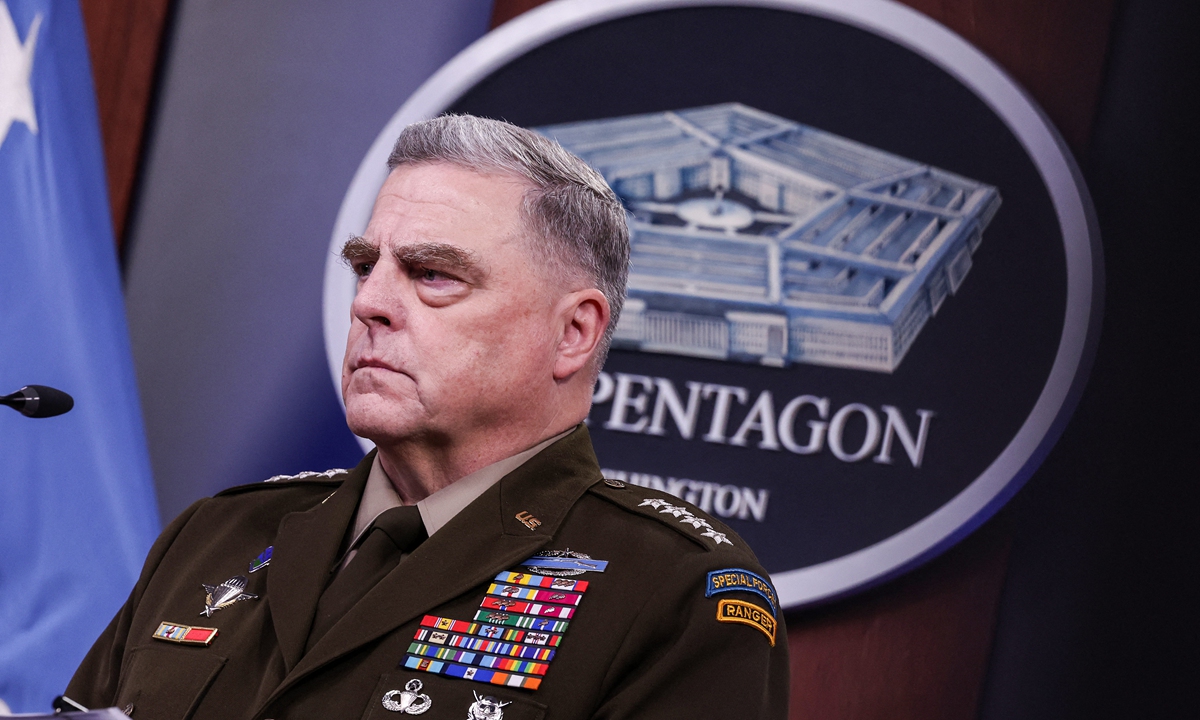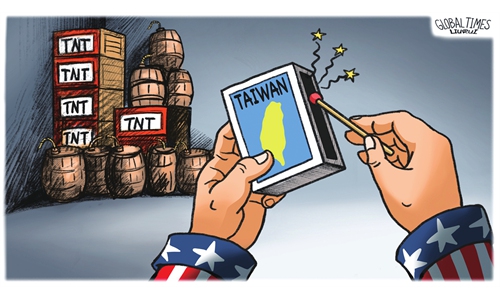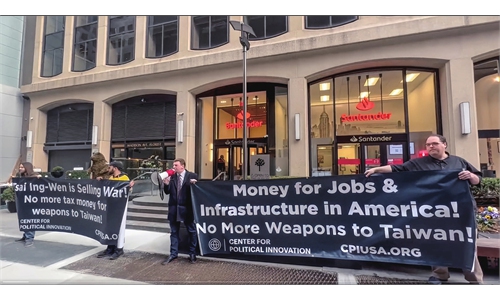US military is becoming a dove, as career soldiers know real American capabilities

US Joint Chiefs of Staff Chairman General Mark Milley Photo: AFP
As US armchair politicians and analysts are hyping up a possible war, true American warriors are calling for peace. Everyone needs to calm down about war with China, top US general Mark Milley said on Friday in an interview with Defense One. On Monday, Taipei Times published a front-page story featuring Milley's rhetoric.
According to Defense One, the China heat is on following this year's Chinese balloon saga. In the past few weeks, members of Congress in hearings aimed a list of concerns about China - everything from nuclear weapons to computer chips, "invading" Taiwan, and allying with Russia - at Milley and Defense Secretary Lloyd Austin. "Milley has taken to telling lawmakers that war with China - and Russia - is not imminent or inevitable. It's part of an effort to lower the heat," Defense One reported, citing Milley and adding that Milley stressed a more realistic and less emotional approach is needed when dealing with China-US ties.
Milley clearly recognizes the predicament the US faces amid US politicians and media's excessive hype of tensions with China. To some extent, he was saying that something has gone wrong in the US' China policy, and the problem is mainly on the US side.
As a career soldier, Milley realizes when the US displays overly hawkish hostility against China, it goes far beyond the actual needs of American national interests. Thus, he made his point - the US military should not be dragged into a war with China for hysterical reasons, in other words, for the constant hype of unreasonable tensions, Shen Yi, a professor at Fudan University, told the Global Times.
Taiwan regional leader Tsai Ing-wen is on a visit to Central America with a planned stop-by in California and a scheduled meeting with Republican House Speaker Kevin McCarthy. US officers, think tanks, and media have been sparing no effort to stir up troubles about the Taiwan question long before the trip. They either constantly make speculations on the timetable of a possible cross-Straits war, or simulate war games on the possible American cost of such a conflict.
When American elites who have never fought in a war are obsessed with talking out loud about a military showdown, Milley remains sober. He is well aware that it is not journalists nor politicians who will have to fight on the front lines. And he knows it is not in the US' interest to actually fight a war against China. For a career military personnel, it is more important to boost deterrence than actually joining a hot war.
More importantly, it is completely unrealistic for the US to confront both China and Russia militarily simultaneously. Milley is aware of the strength of American military power; thus, he knows that Washington should not provoke Beijing and Moscow at the same time. Otherwise, the US will simply wreck its capability to seek absolute military hegemony worldwide, Song Zhongping, a Chinese military expert and TV commentator, told the Global Times.
Milley's argument is objective and calculative. After calling for a cooling down of tensions, he said that he prefers the "speak softly, carry a big stick" tactic - lowering the rhetoric a little bit while making sure the US has an incredibly powerful military that is capable. And he agrees with calls for the US to send arms to Taiwan island as quickly as possible.
It means that despite the fact that the US still has a clear military advantage, such an advantage is no longer overwhelming. Hence Milley believes a military means is not an option before it has a sufficient advantage in the armed forces.
That's the reason for ceaseless US arms sales to the Taiwan island - the US is not preparing to fight China; it is preparing Taiwan island to fight the Chinese mainland. The US won't willingly sacrifice itself to help Taiwan secessionist forces, but it is willing to fight a proxy war, using the Taiwan island as a consumable or a pawn.
The US still remains the most powerful country on the globe, but its toxic political environment has been eroding its strength since the end of the Cold War. The toxic environment is what drives Milley's concerns on whether the US' might can be long-lasting.
China's development and the US' decline are not directly related. And the current era is no longer one in which one country can play a dominant role with purely military power. Benign competition can help both China and the US develop. If China becomes strong enough one day, it will be grateful to both its friends and strong competitors, including the US, Song said.
The US is too anxious and hysterical, because it has lost its way and is on the wrong path.


